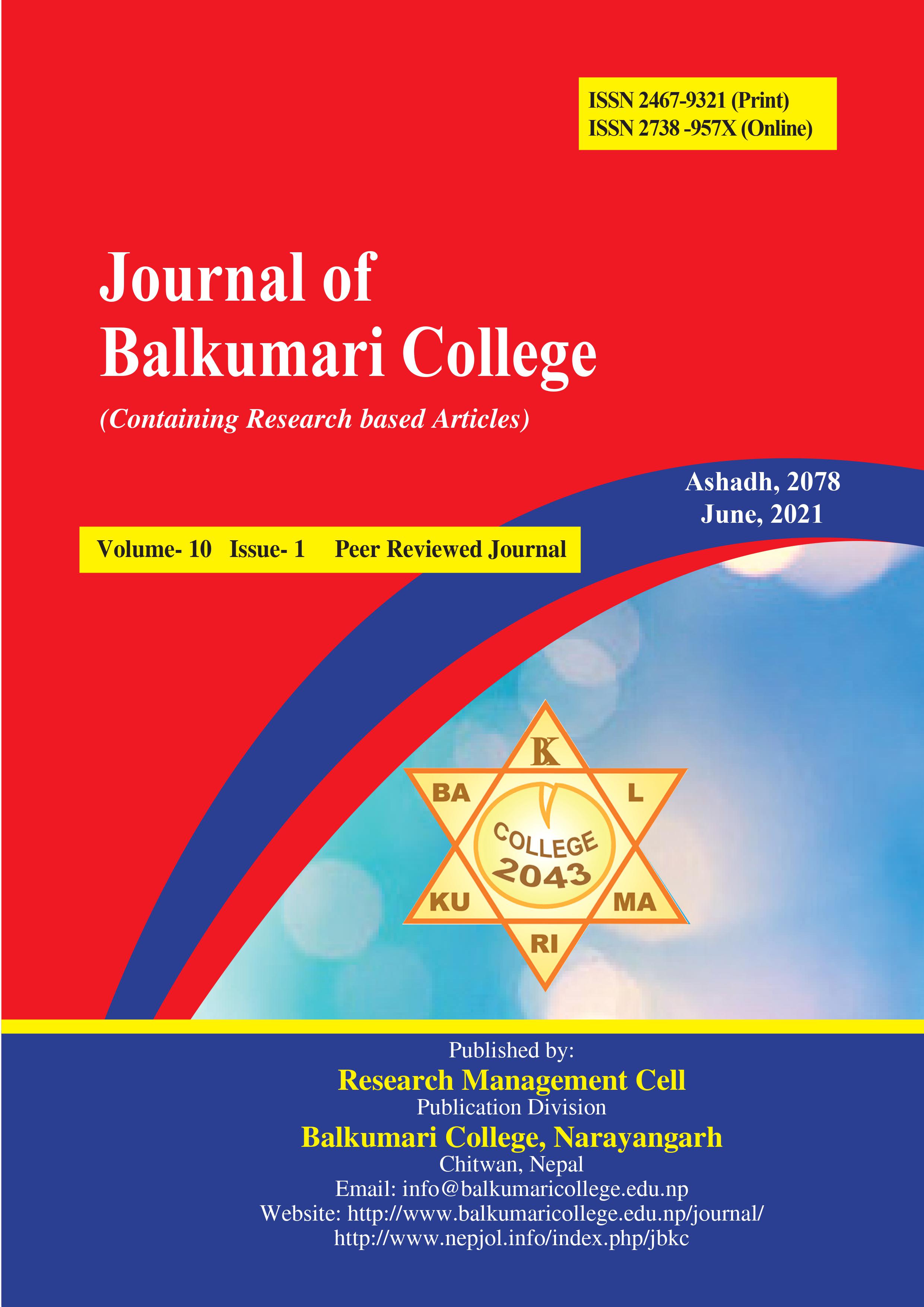Effect of Credit Risk Management on Financial Performance Of Nepalese Commercial Banks
DOI:
https://doi.org/10.3126/jbkc.v10i1.42088Abstract
The main purpose of this study is to investigate the effect of credit risk on the financial performance of commercial banks in Nepal. The panel data of seventeen commercial banks with 85 observations for the period of 2015 to 2020 have been analyzed. The regression model revealed that non – performing loan (NPLR) has negative and statistically significant impact on financial performance (ROA).Capital adequacy ratio (CAR) and bank size (BS) have negative and statistically no significant impact on financial performance (ROA). Credit to deposit (CDR) has positive but no significant relationship with the financial performance (ROA) and the study concluded that the management quality ratio (MQR) has positive and significant relationship with the financial performance (ROA) of the commercial banks in Nepal. The study recommends that, it is fundamental for Nepalese commercial banks to practice scientific credit risk management, improve their efficacy in credit analysis and loan management to secure as much as possible their assets, and minimize the high incidence of non-performing loans and their negative effects on financial performance.




